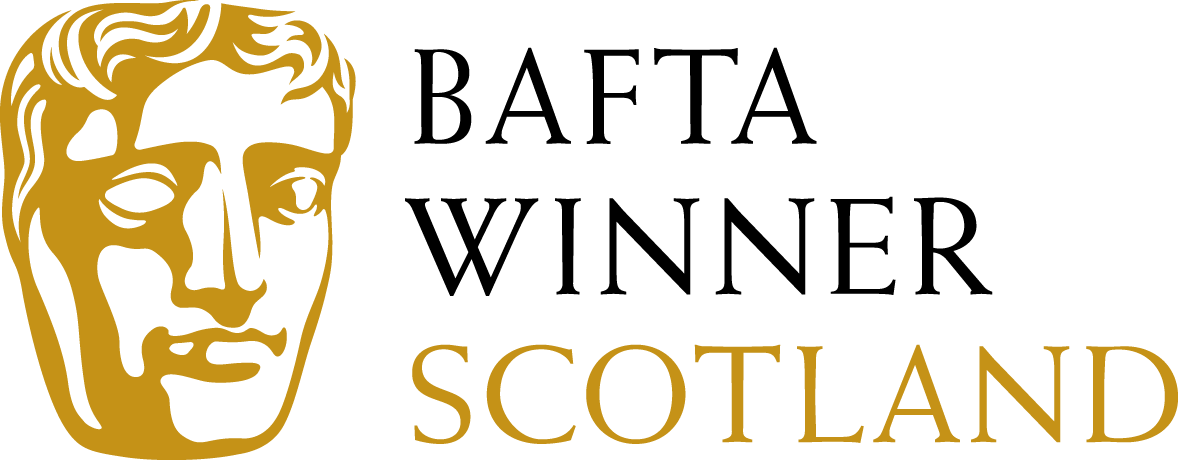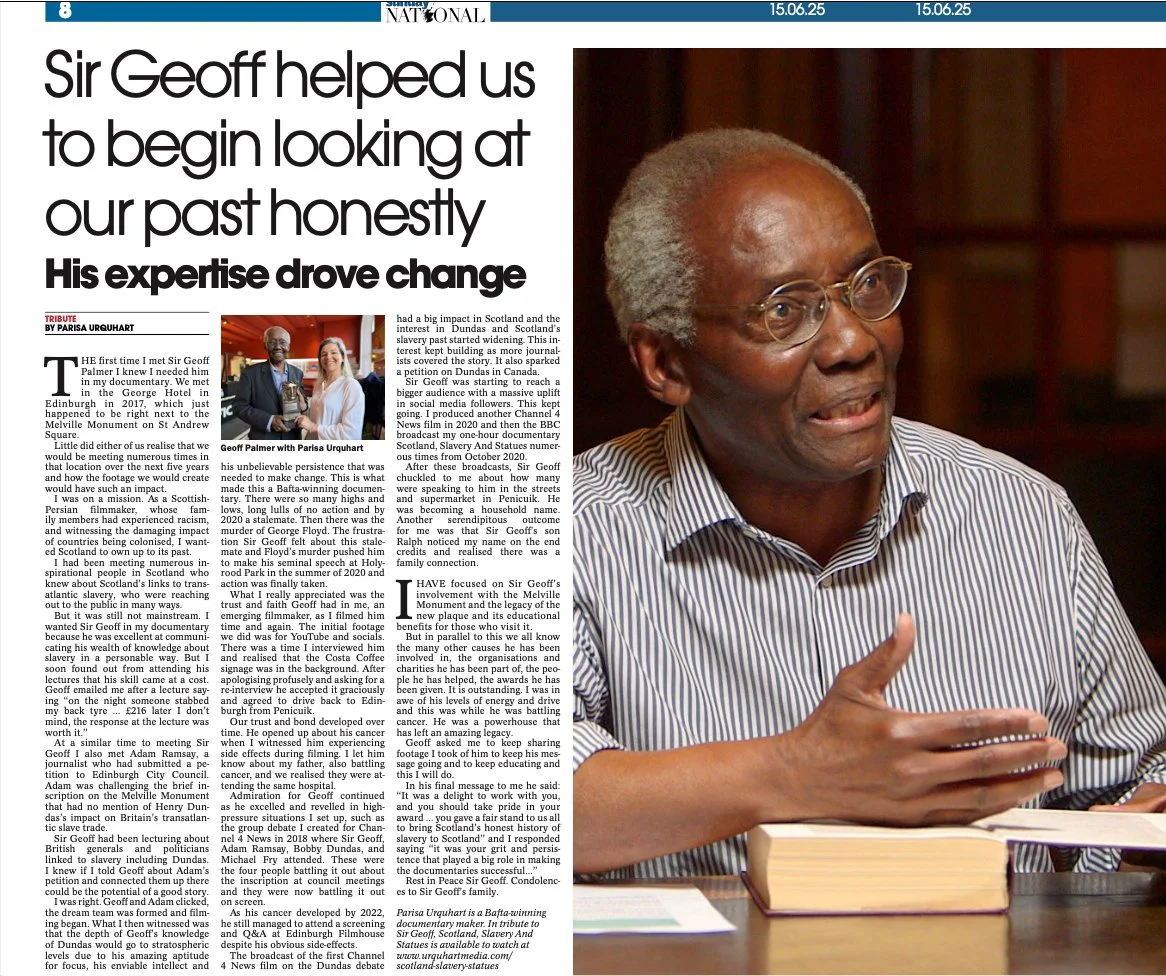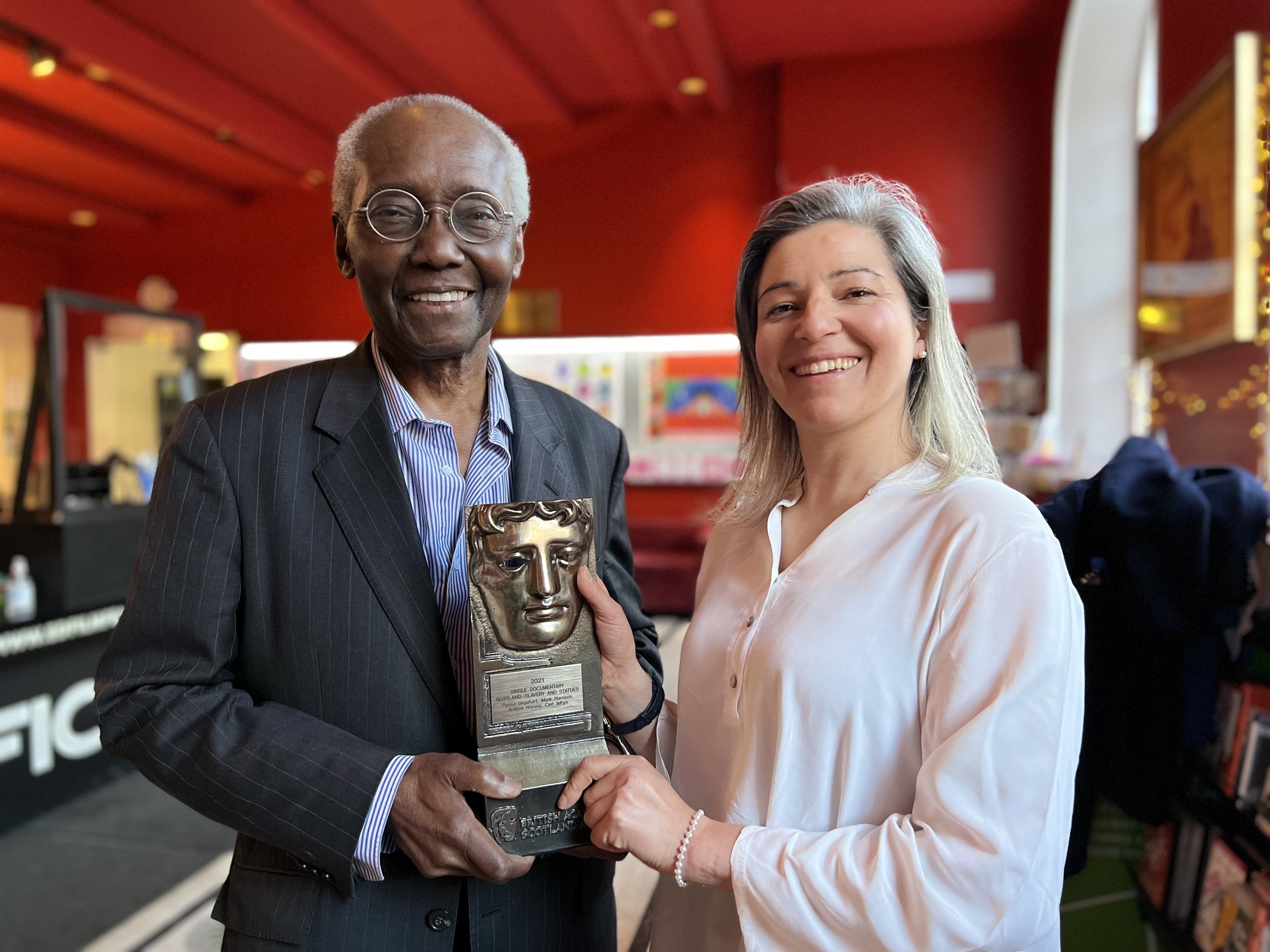Scotland, Slavery & Statues
‘Single documentary’ winner 2021
BAFTA-Winning Scotland, Slavery & Statues
A fierce debate has arisen about the inscription of Scotland's tallest statue – a debate symbolic of Scotland grappling with its slavery history. We show the twists and turns of this four-year story.


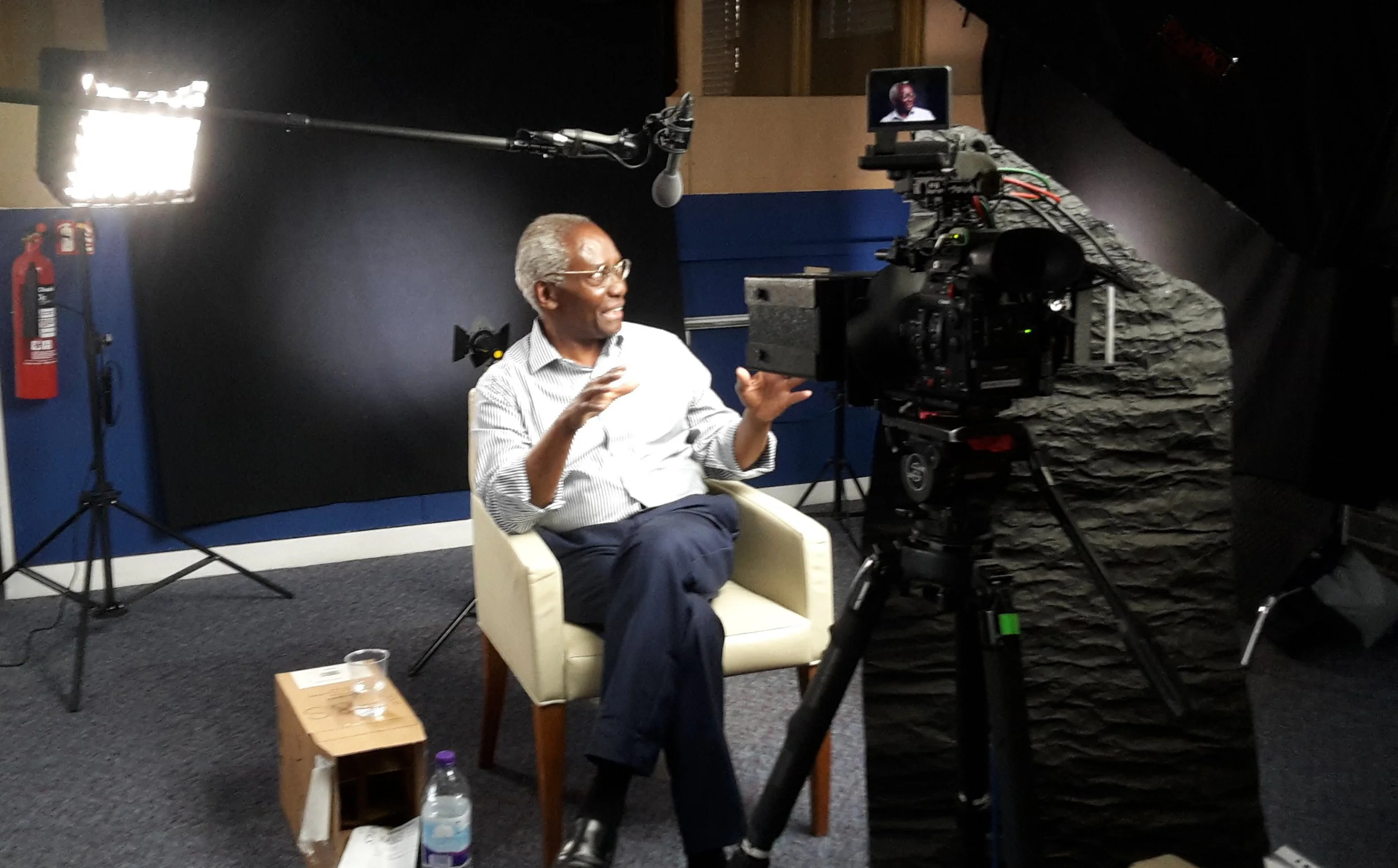



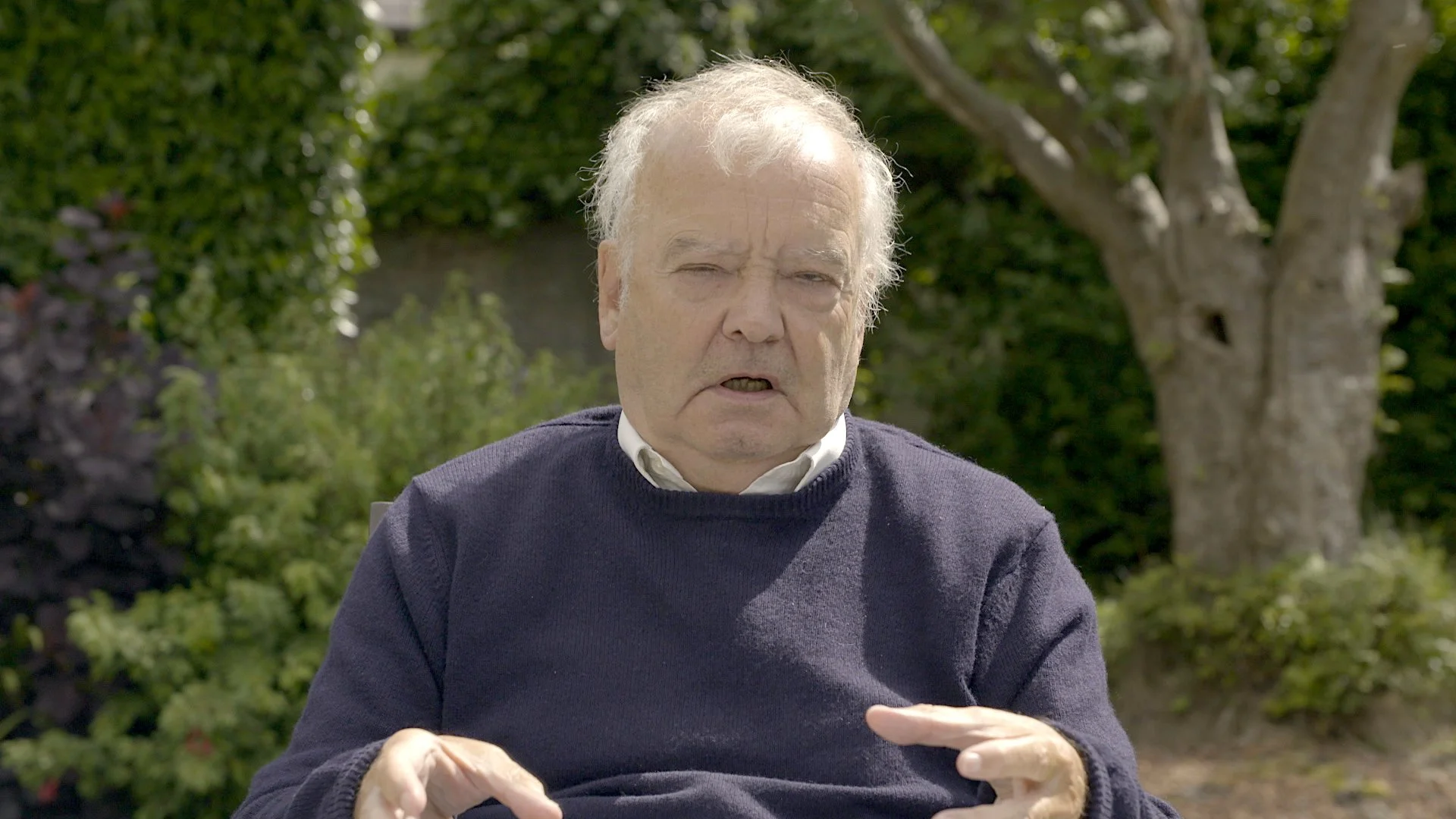
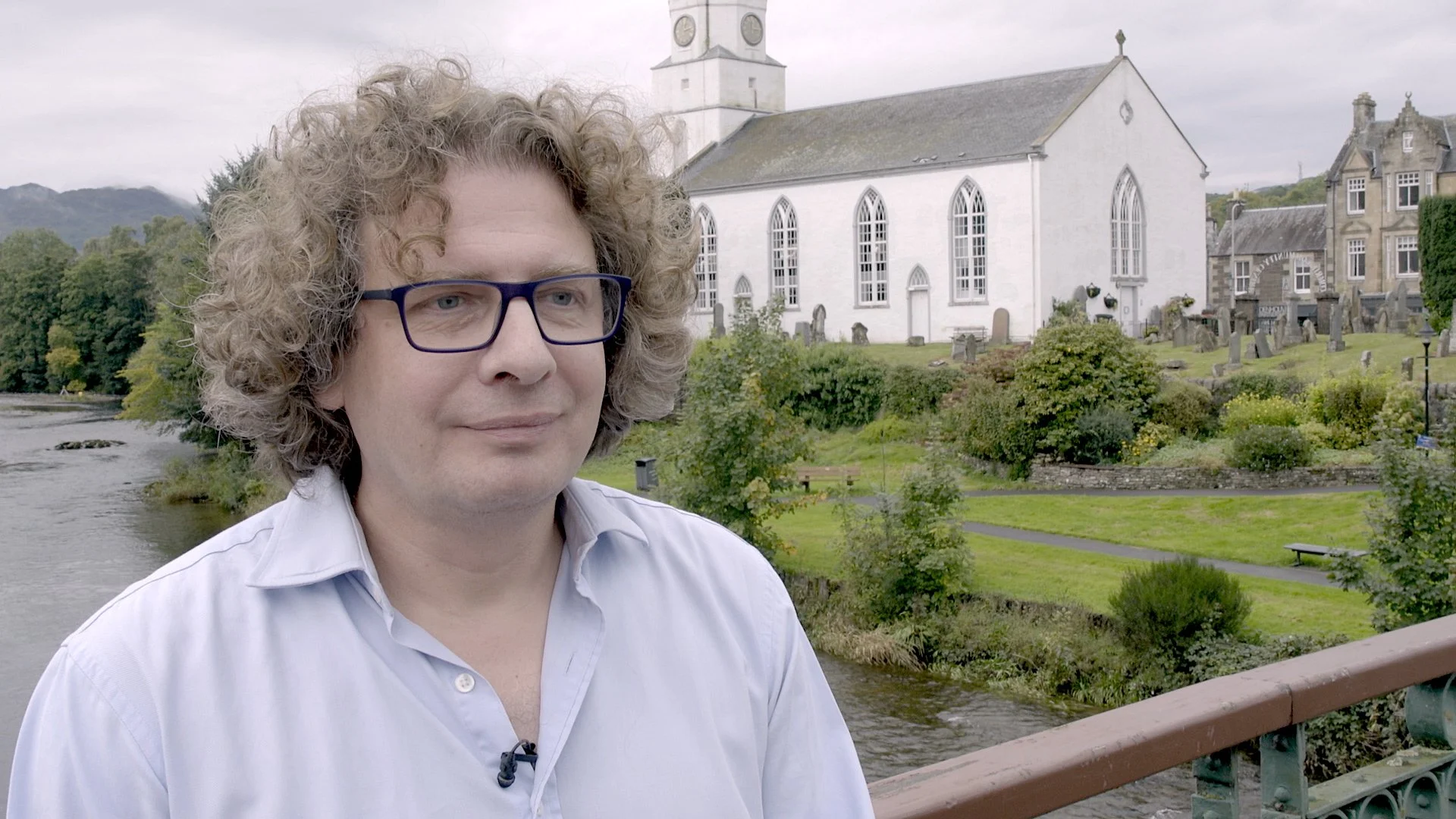







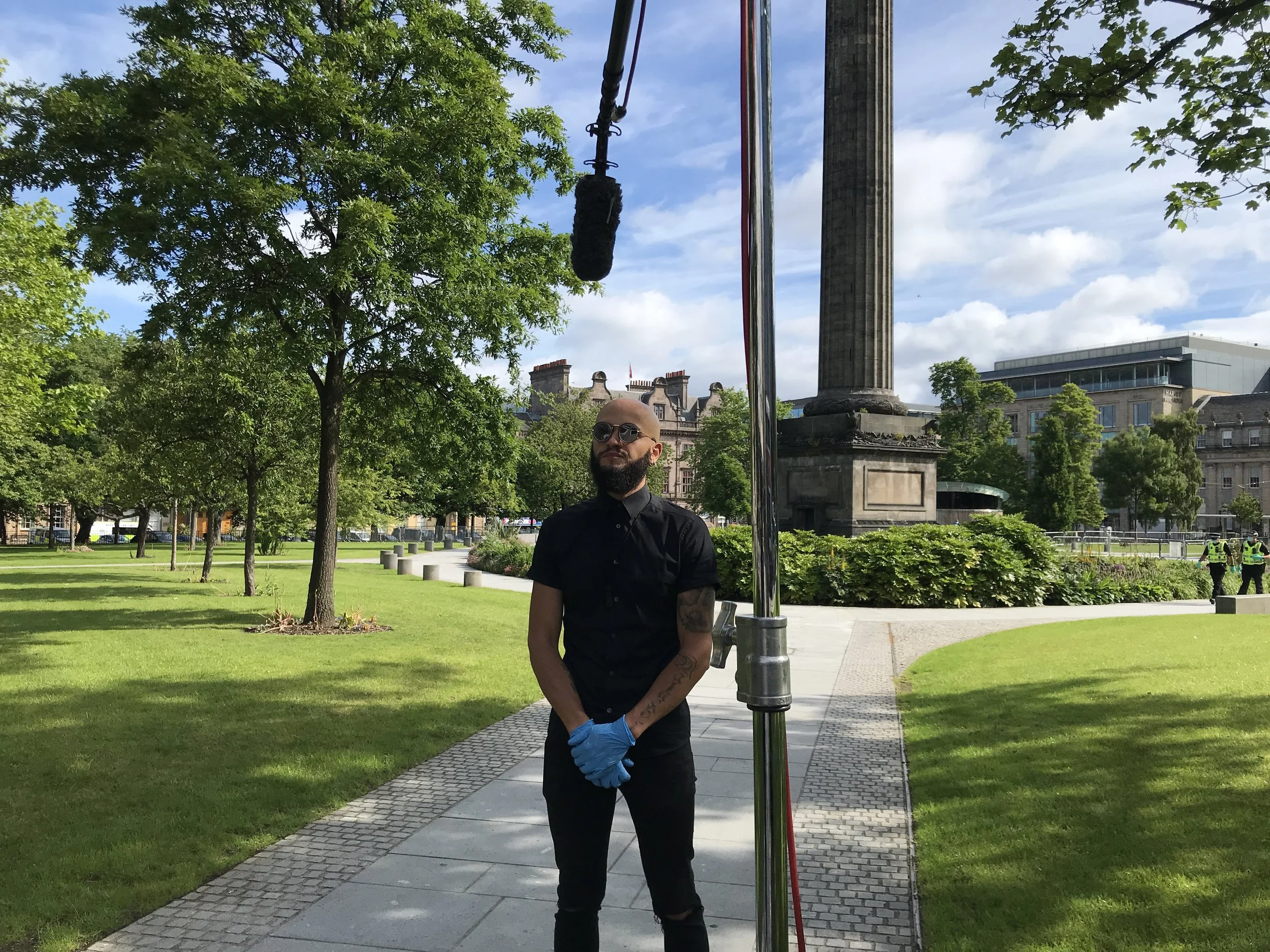
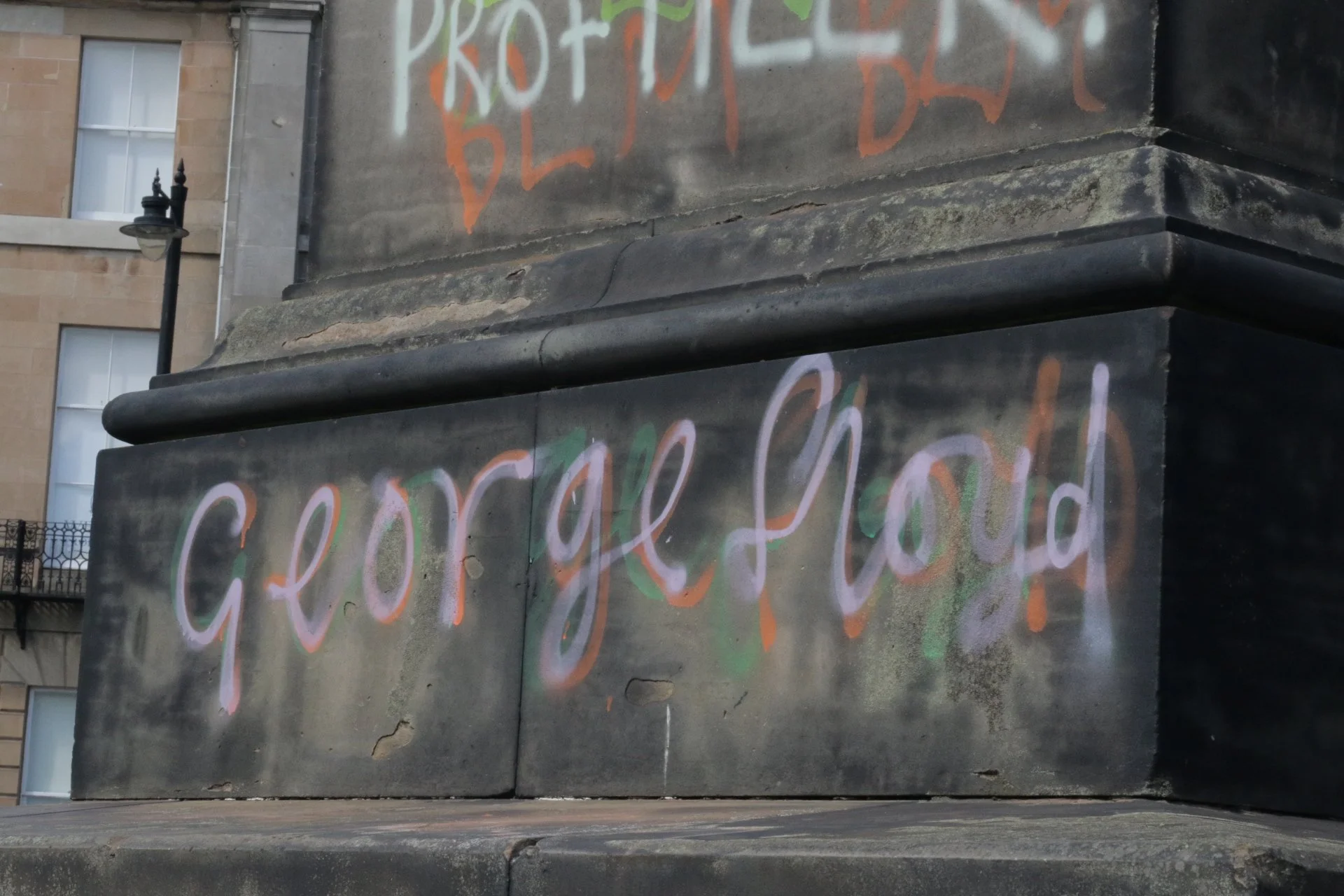
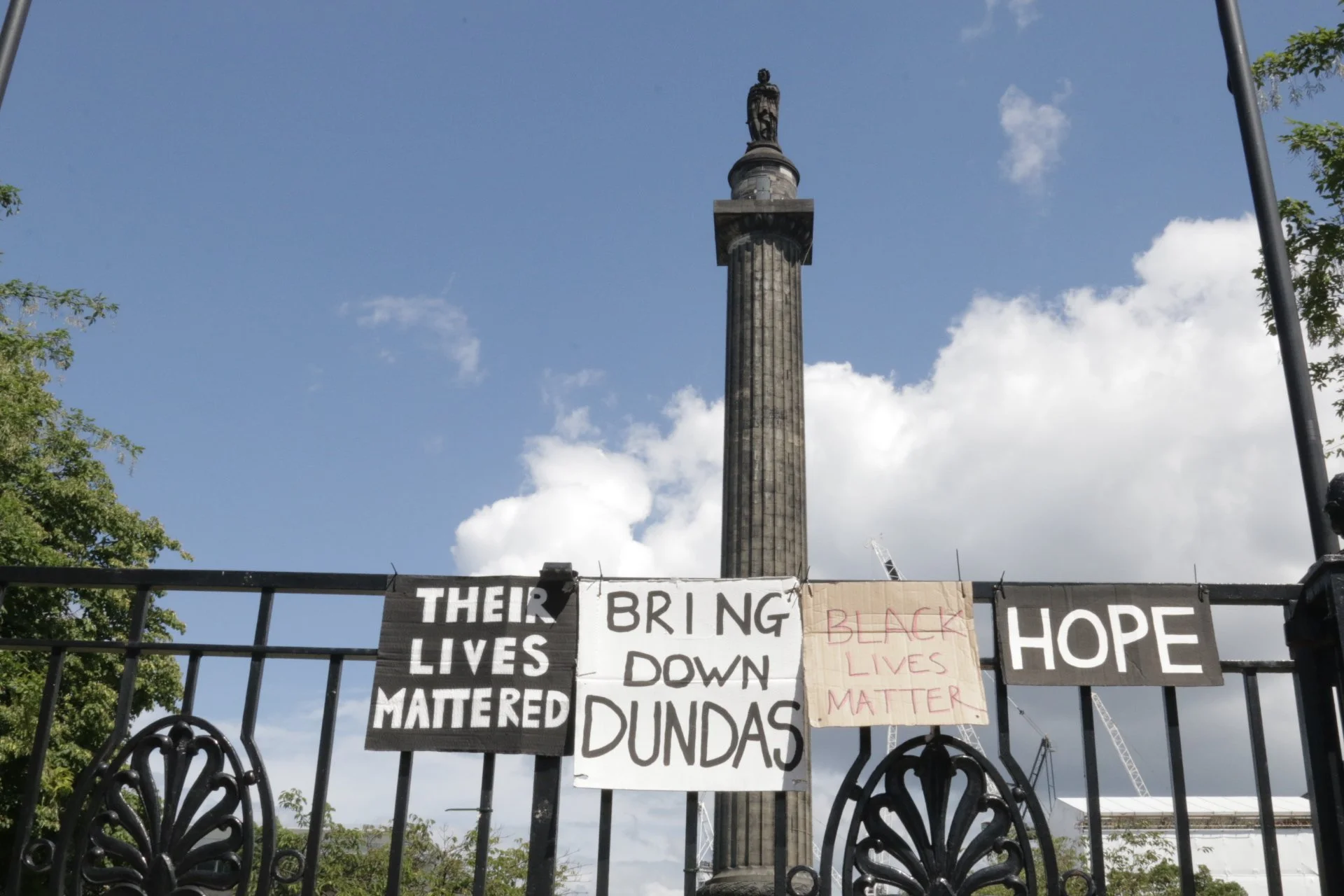


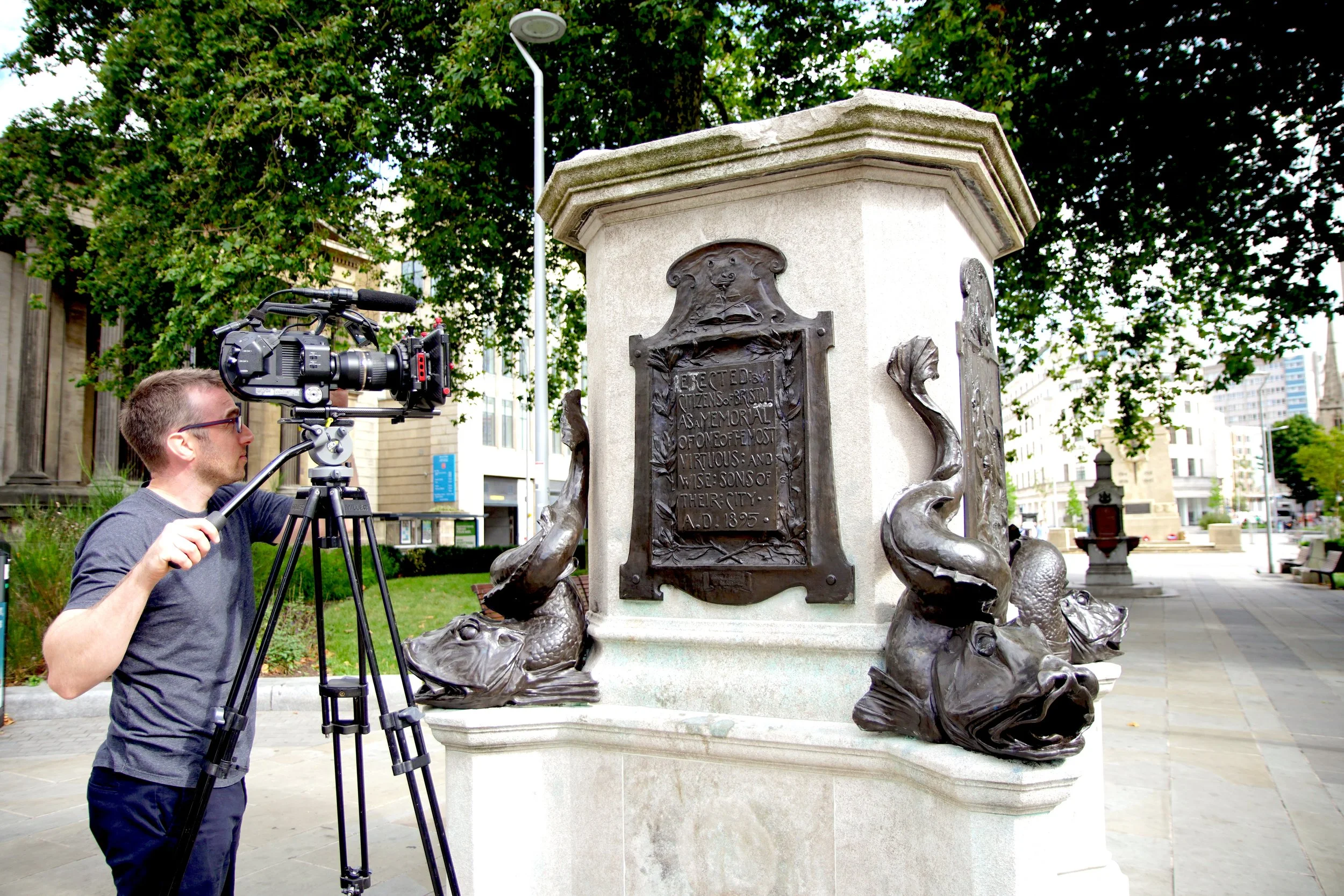
This documentary was produced and directed by Parisa Urquhart. Parisa managed to gain commissions from Channel 4 News as the story progressed and then won a commission from BBC Scotland in 2020. This documentary has been broadcast many times, sparked nationwide press coverage and won a BAFTA Scotland award in 2021. There was a theatrical screening at The Filmhouse in Edinburgh in spring 2022 with an electric Q&A. It is now being distributed worldwide most recently screening in Australia on SBS.
BAFTA WIN
Producer & Director Parisa Urquhart holding her BAFTA with Sir Geoff Palmer KT OBE CD, the main contributor of this documentary, at the Edinburgh Filmhouse after a screening and Q&A in 2022.
SYNOPSIS
The death of George Floyd in the US sent shockwaves across the world. The Black Lives Matter movement intensified. And Scotland was not getting off lightly. The epicentre of this was in Scotland’s capital city, Edinburgh. A 150-foot statue of Henry Dundas ignited a fiery debate in 2017 that continues to this day.
Henry Dundas, a Scot, was one of the most influential 18th century Tory politicians who held powerful roles during the height of the British Empire.
This BAFTA-winning documentary directed by Parisa Urquhart follows the deeply personal debate over how Dundas should be acknowledged on the monument. Scotland’s first black professor Sir Geoff Palmer argues that Dundas deliberately delayed the abolition of the slave trade. Whereas, Dundas’ direct descendent aristocrat Bobby Dundas, argues that his ancestor was an abolitionist.
We show the twists and turns of this four-year story including how Scotland’s debate triggered a debate in Canada on renaming Toronto’s Dundas Street, and how the toppling of Bristol’s Colston statue impacted on decisions made in Scotland. How will Scotland as a country come to terms with its long and often hidden involvement in slavery?
THE FILM TEAM:
Producer/Director: Parisa Urquhart , Executive Producer Mark Harrison, Editor Anthea Harvey, Edit producer Ceri Isfryn, Assistant Producer Winifred Kakouris
Narrator Moyo Akande,
DOPs Garry Torrance & Julian Schwanitz, with additional filming by Parisa Urquhart, Tommy Sheridan, Ling Lee.
Co-production partners Urquhart Media & Firecrest Films, Online Edit & Grading Blazing Griffin .
Channel 4 News commissioned a film on the fierce debate surrounding the Melville Monument. It was screened as part of the News Show in 2018. Produced and Directed by Parisa Urquhart
TESTIMONIALS ABOUT BBC’S SCOTLAND, SLAVERY AND STATUES
“This was a really strong and impressive film. Also impressed that Parisa managed to film during the complications of covid.”
Anthony Baxter, Filmmaker (You’ve been Trumped, The Dangerous Game, Flint)
“I thought this was an excellent documentary: well-balanced, giving a voice to all sides, but ultimately carried by Sir Geoff Palmer's dignity, tenacity and belief that we can all do better by knowing better.”
James Smith, Vice Principal, Edinburgh University
“It's a revealing study of contemporary disputes over racial slavery and public memory (from Edinburgh to Bristol and Toronto).”
The Wilberforce Diaries Project led by Prof John Coffey, University of Leceister
“I felt it was important to narrate ‘Scotland, Slavery and Statues’ because this documentary highlights an important part of our history that is often untold. It’s important to acknowledge and celebrate the past. However, we cannot move forward in the present if we don’t reveal the whole truth about the individuals and establishments that helped shape and build Scotland’s society; for good or bad.”
Moyo Akande, Scottish-Nigerian Narrator of ‘Scotland, Slavery & Statues’
“Just finished watching this brilliant documentary debating Henry Dundas’ role in delaying the abolition of the slave trade in the late 1700s. Scotland’s history is steeped in the horrors of the trade. Would highly recommend a watch to everyone - especially N4/5 Historians!”
Hannah Page - History Teacher, Queensferry High School. Queensferry, Scotland
